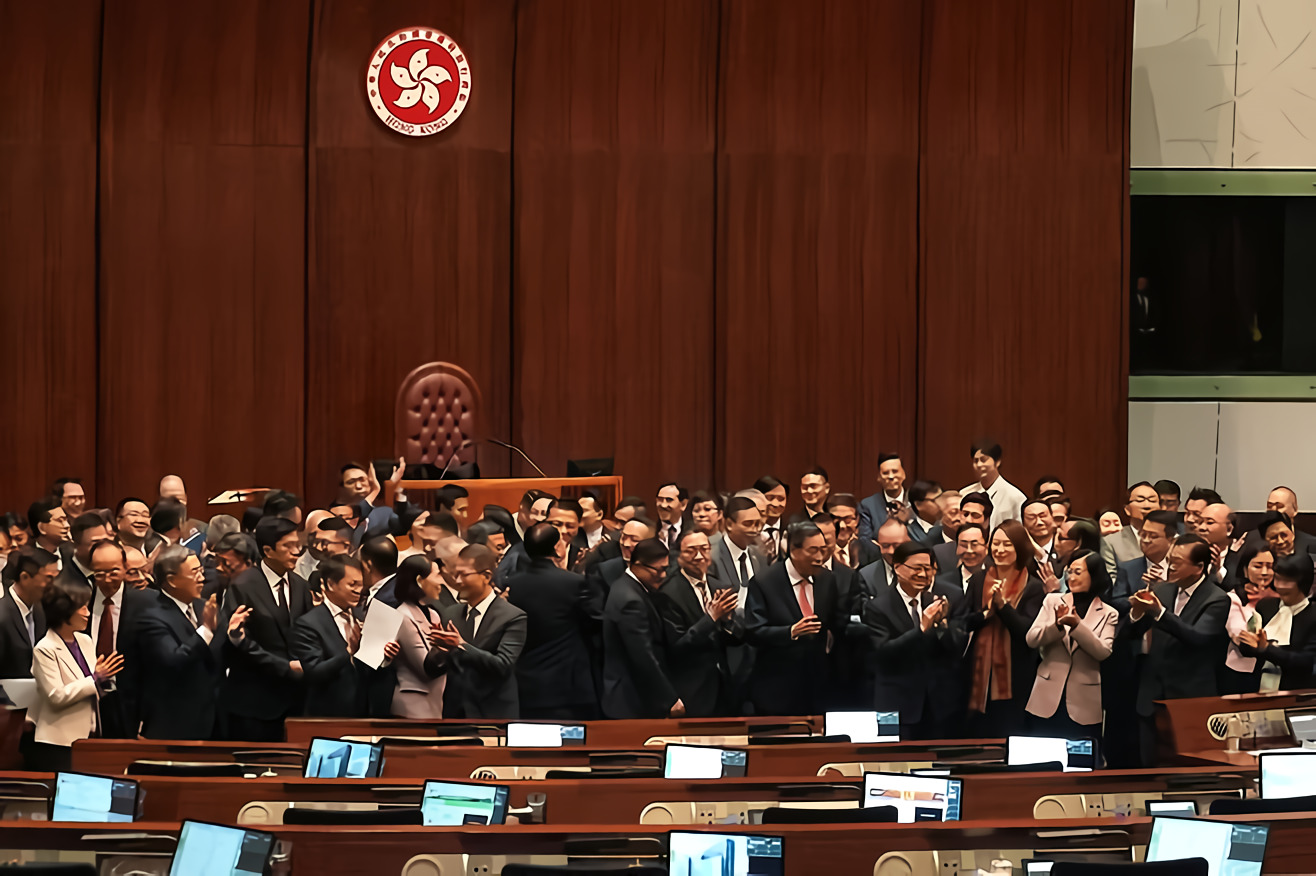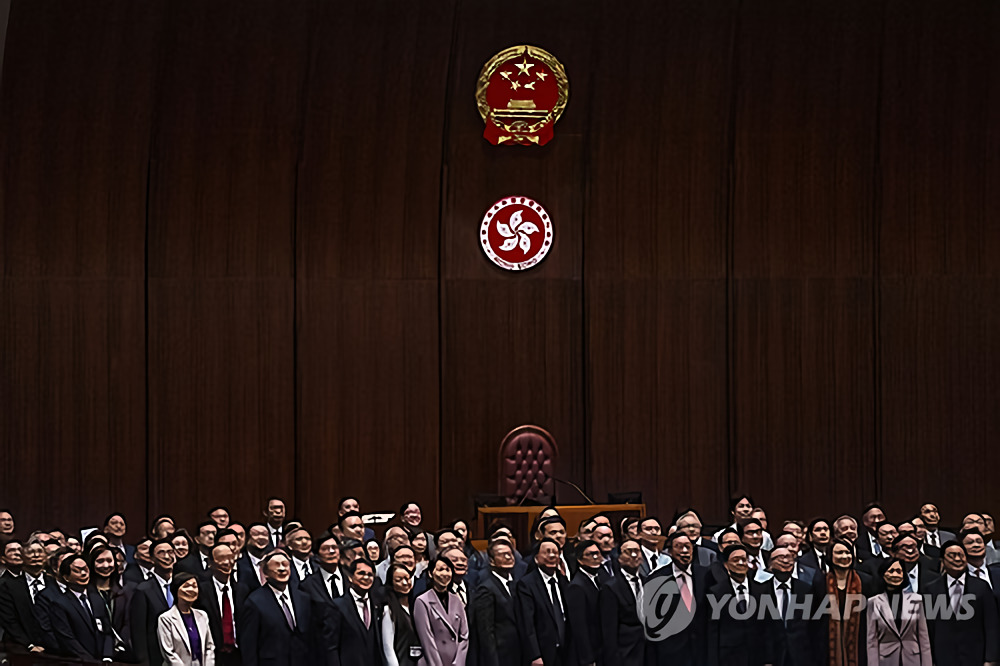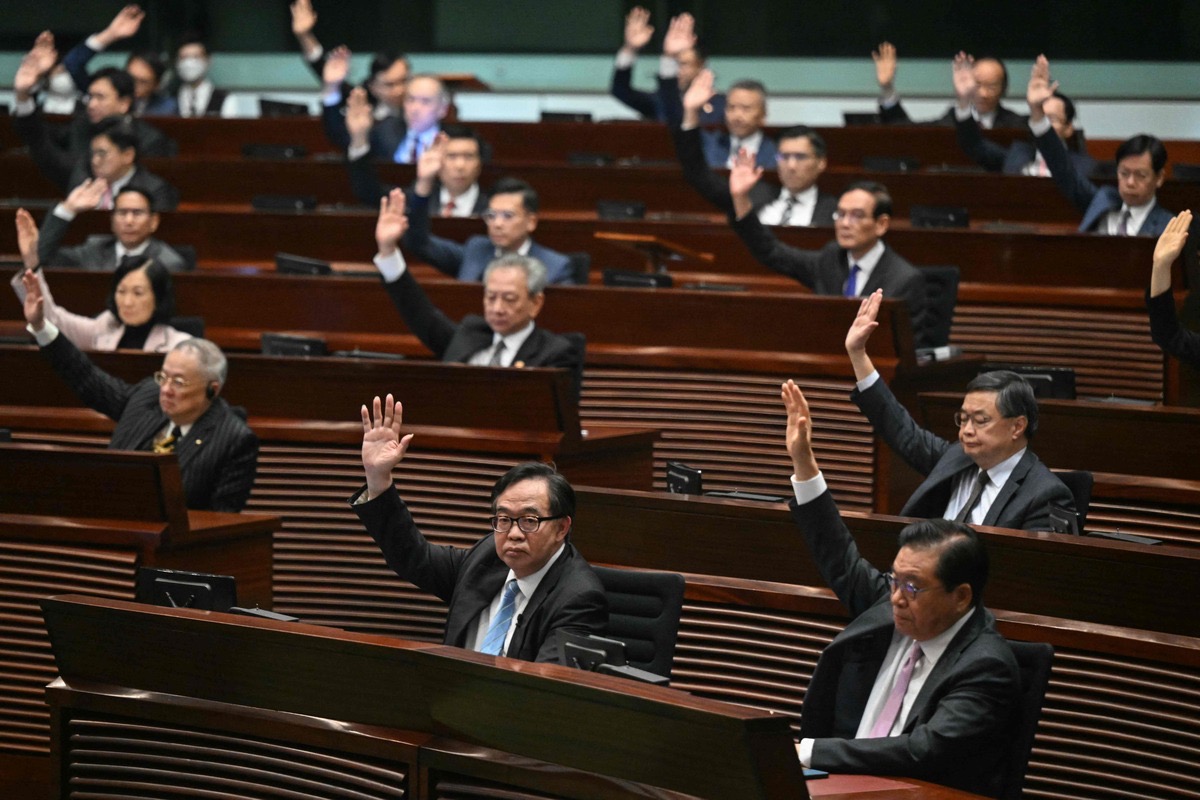On March 19, the Hong Kong Legislative Council unanimously approved the Hong Kong National Security Law, also known as Article 23 of the Basic Law, citing the need to maintain social stability. The law encompasses 39 security offenses, including acts of national secession, subversion, terrorism, and collusion with foreign entities. Each offense carries a severe penalty, such as imprisonment of up to 14 years for colluding with foreign entities and up to 10 years for spreading false or misleading information, even in relatively minor instances related to external forces. This amendment officially became effective at midnight on March 23.
 |
| ▲ Members of the Hong Kong's Legislative Council are celebrating the passing of the Hong Kong National Security Law bill. (Photo from Chosun Ilbo) |
This Hong Kong National Security Law, which China passed in 2020 in response to the widespread anti-government protests in Hong Kong, was supplemented by this additional legislation. In other words, it means that Hong Kong currently has two active laws about security. The bill specifies five punishable offenses. It includes treason, secession, terrorism, collusion with foreign forces, and theft of national secrets and espionage. Treason and sabotage offenses are punishable by up to 20 years in prison. However, life in prison is also possible if there is cooperation with outside parties. The penalty for these five crimes is further subdivided into 39 categories: 5 to 7 years for obtaining state secrets unlawfully, 5 to 10 years for disclosing them unlawfully, and up to 20 years for threatening national security through the use of electronic systems. Previously, incitement charges increased from 2 to 7 years upon conviction, and police are now authorized to detain individuals for up to 16 days before prosecution, with restrictions on access to legal representation also introduced.
 |
| ▲ Commemorative Photo of the Legislative Council (Photo form Yonhap News) |
The wording used, such as the requirement that the basis for punishing collaboration with foreign forces be ‘illegal intent’ and ‘improper means,’ is ambiguous and gives rise to concerns. Volker Türk, the United Nations High Commissioner for Human Rights, showed concern that these kinds of provisions would make illegal several activities protected by international human rights law, such as the freedom of speech, the right to, peaceful assembly, and the right to information. Upon the enactment of this law, neighboring countries issued travel advisories. Travelers visiting Hong Kong are advised to exercise caution due to the many vague and confusing features of the law, as highlighted by the Taiwan National Security Bureau. Taiwanese nationals planning a trip to Hong Kong should exercise caution regarding potential investigations upon their arrival due to their public criticism of Chinese politics and economic issues. The chairman of the Taiwan-Hong Kong Economic and Cultural Cooperation Council says "The travel and business activities of foreigners in Hong Kong will both be affected.” The Australian government has also issued a travel advisory, warning that travelers could violate the law unintentionally if it is interpreted broadly. Furthermore, they could be detained without prosecution and refused access to legal representation.
 |
| ▲ The Legislative Council Voting on the New National Security Law (Photo from Kompas) |
The autonomy of Hong Kong seems to have been limited to 2023 instead of the agreed-upon timeframe until 2047 due to the implementation of a security framework similar to China's. As Hong Kong undergoes rapid sinicization, there are concerns that the freedoms enjoyed by its residents will erode, potentially jeopardizing its status as an 'Asian financial hub.' Following the law, the crackdown on activities such as leaking classified information in Hong Kong might escalate to levels observed in mainland China, where the 'Counter-Espionage Law' is enforced rigorously. Consequently, some companies are swiftly divesting from Hong Kong.
박상우, Daka batsuuri, 김연재 dankookherald@gmail.com

 Vote for the Campus Brand Naming!
Vote for the Campus Brand Naming!

![[Campus Magnifier] Let's Surf the Library!](/news/thumbnail/202404/12496_1765_4143_v150.jpg)




